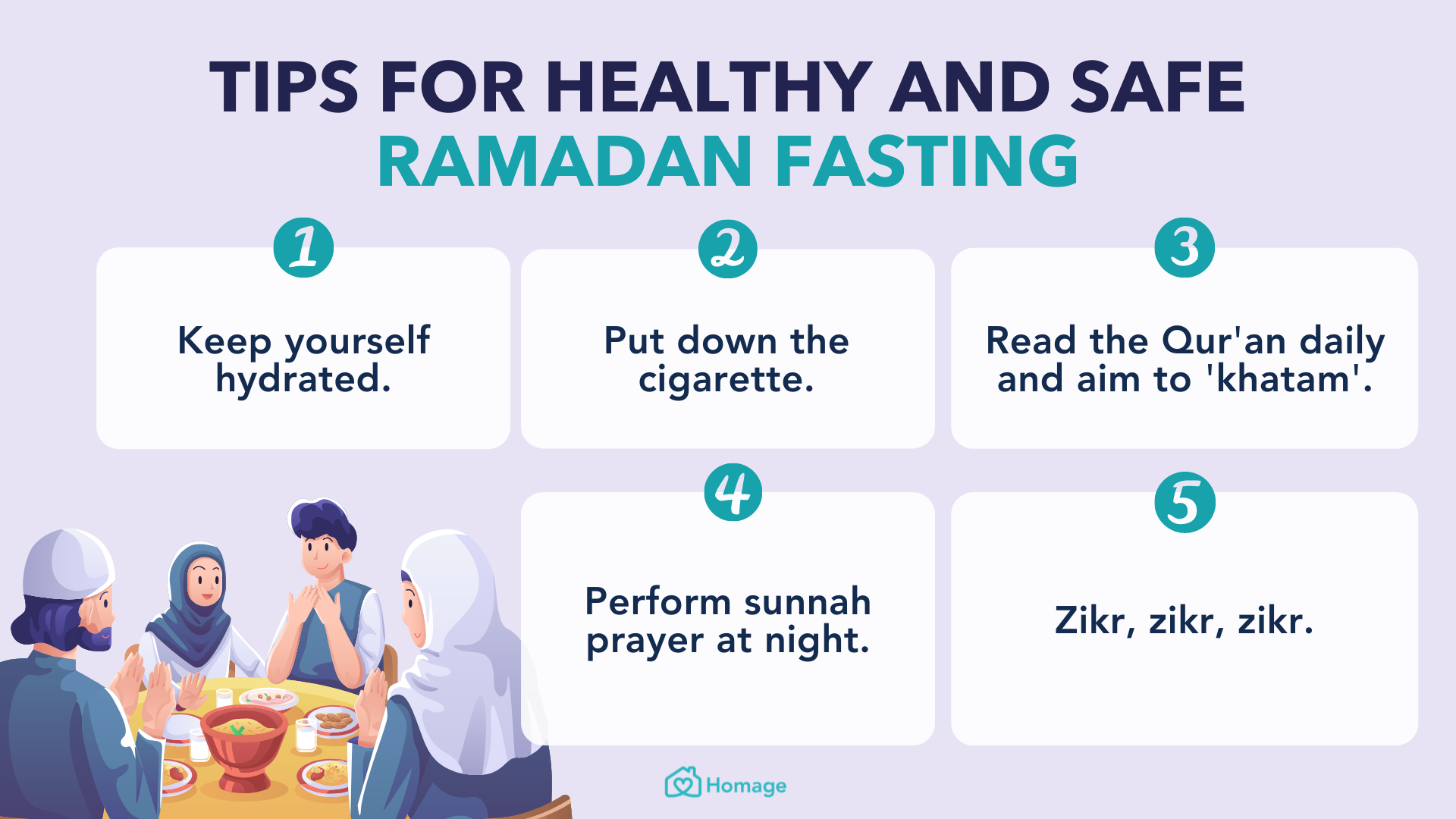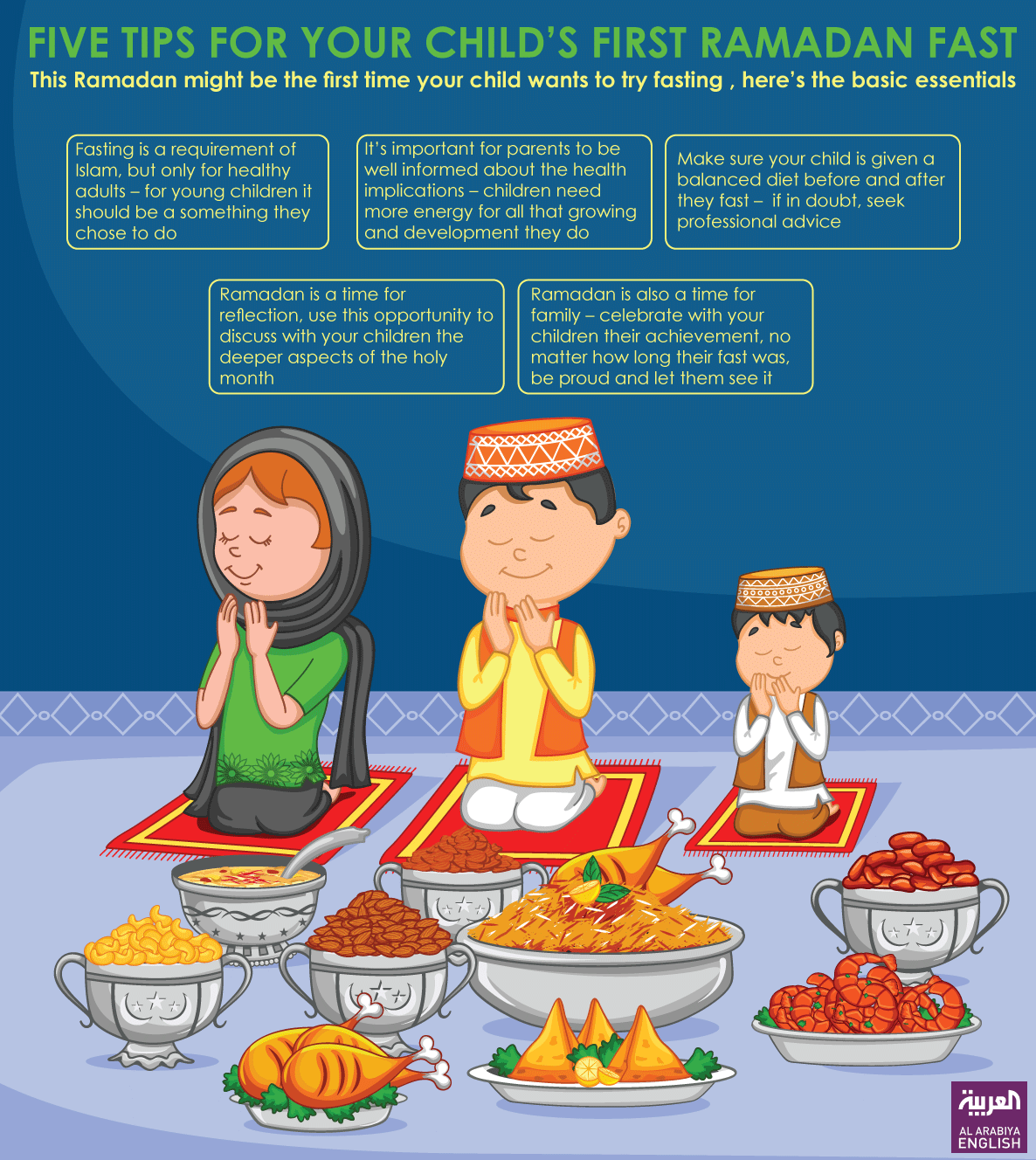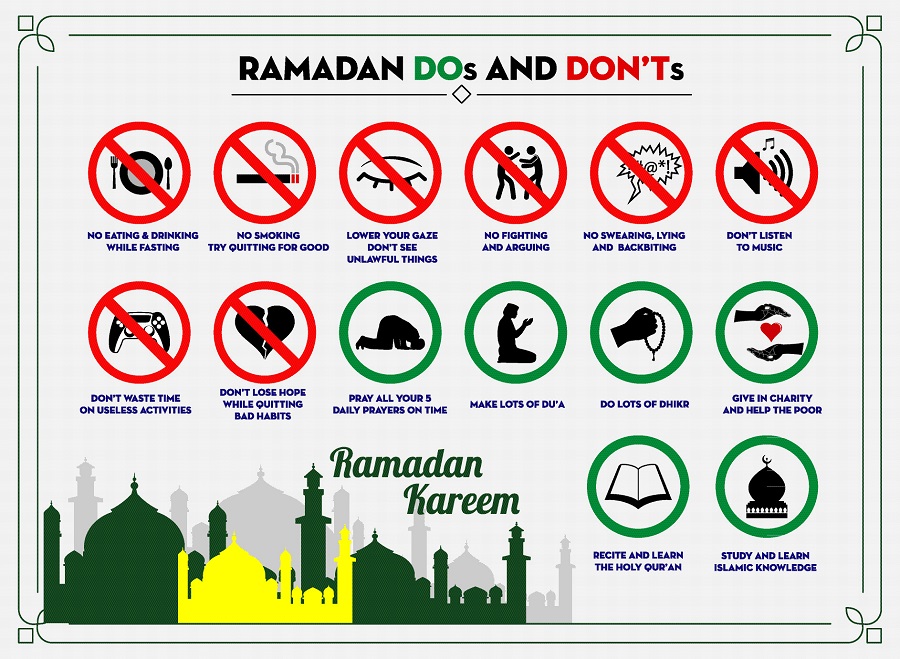Gallery
Photos from events, contest for the best costume, videos from master classes.
 |  |
 |  |
 |  |
 |  |
 |  |
 |  |
In Islam, fasting is a key act of worship. It requires avoiding eating, drinking, and sinful behavior from dawn until sunset. The rules of fasting for Ramadan include maintaining good conduct, increasing prayer, and seeking forgiveness. Fasting helps build self-control, patience, and spiritual growth. Prepare for Ramadan fasting by increasing your knowledge of its rules. Set your intention (Niyyah) before starting the fast. Adjust your sleep schedule for Suhoor and plan nutritious meals for both Suhoor and Iftar. In Islam, fasting (sawm) is a basic act of worship, especially during Ramadan. However, certain acts nullify the fast, and to know fasting rules during ramadan you need to familiarize yourself with them. The most important things that nullify the fast according to Islamic teaching are: 1. Fasting rules during Ramadan for Intentional Eating and Break the fast in moderation. The daily fast’s duration can vary by location depending on the hours of daylight. Experts say to take it easy and listen to the body while fasting. Elfakhani tries to slow down during the day in between teaching stints and catches up on work after the evening iftar meal. Ramadan fasting rules When it comes to rules and guidelines for fasting during Ramadan, the Prophet Muhammad (peace be upon him) has clearly defined them for Muslims to follow. According to the Sunnah, while fasting, Muslims must refrain from eating and drinking from dawn to dusk, and sexual activity, as these actions invalidate the fast. During the month of Ramadan, Muslims don’t eat food or drink any liquids from sunrise to sunset. Those participating in fasting usually wake up before sunrise to eat a meal called Suhoor or Sehri. As the adhan calls for Magrib prayer, one breaks their fast with a post-sunset meal called Iftar. Muslims must have the intention to fast every night during the month of Ramadan. They also must abstain from acts that nullify the fast: eating, drinking, smoking, engaging in sexual intercourse, intentionally vomiting, menstruating, or bleeding during childbirth. During the fasting period of Ramadan, Muslims traditionally take two fixed meals: A morning meal called Sahur, usually eaten half an hour before dawn; and Iftar, the fast-breaking meal immediately after sunset. Following the tradition of the Prophet Muhammad, Muslims break the fast with eating dates. The daily fast in Ramadan includes abstaining from all food and drink – not even a sip of water is allowed – from dawn to sunset before breaking the fast in a meal known as “iftar” in Arabic. Those fasting are expected to also refrain from bad deeds, such as gossiping, and to increase good deeds. Fasting during Ramadan means abstinence from all food or drink, including water and chewing gum, from dawn to sunset. It is recommended that before sunrise, Muslims eat a prefast meal known as suhur. This meal often resembles breakfast, but in some cultures it may include more dinner-like foods. Ramadan Eating Times, you can only eat and drink after breaking your fast with iftar at Maghrib (sunset). From sunset until the start of dawn, during the time between iftar and suhoor , you are allowed to eat and drink. Siyam, or fasting, means not eating or drinking from dawn (Fajr) to sunset (Maghrib) during the month of Ramadan. It is a way to worship Allah and develop patience, gratitude, and self-control. Fasting is not just about food; it is also about good behavior. The Ramadan rules related to eating during Ramadan are all about maintaining the daily fast with discipline and devotion. The key guidelines include: 1. Fasting Hours. No intake of food and water during the day: Fasting is from the time of Suboh up to evening prayer (maghrib). Muslims do not eat or drink anything, even water. Ramadan is the holiest month in Islam, observed by Muslims around the world. It is a time of fasting, prayer, and reflection. During this month, Muslims fast from dawn to sunset, refraining from eating, drinking, and other restricted activities. The fast begins with Sehri (Suhoor), the pre-dawn meal, and ends with Iftar, the meal taken after Ramadan is a month of adoration, so we must receive it with repentance to Allah. We have to perform more virtuous deeds therein such as reciting the Quran, performing optional prayers, abundantly mentioning Allah, giving in charity, visiting your relatives and keeping good relations with them so that you may improve the forgiveness and the mercy of Allah. The Rules of Fasting During Ramadan 1. No Food or Drink During Daylight Hours. Muslims fast from dawn (Fajr) to sunset (Maghrib), refraining from all food and drink. This includes water. Fasting begins with the pre-dawn meal, suhoor, and ends with the evening meal, iftar. 2. Avoiding Negative Behaviors. Fasting extends beyond physical abstinence. The reason fasting six days of Shawwal after Ramadan is like fasting for a year is because Allah multiplies good deeds by ten. The Prophet clarified in another narration, “Fasting the month of Ramadan is like ten months of fasting and fasting six days of Shawwal is like two months of fasting. Thus, they are like fasting for a year.” What are the rules for fasting during Ramadan? Fasting during Ramadan means complete abstinence from all food, drink, intimate relations, and smoking from dawn until sunset. Ramadan Fasting Rules, There are strict rules around what breaks or invalidates the fast: Eating and drinking. Eating or drinking anything intentionally will invalidate the The month-long festival of Ramadan starts this March, in the ninth month of the Islamic calendar and is marked by fasting during the day. There are some strict rules that Muslims must follow Fasting is an obligation and a popular practice among Muslims. It provides many physical and spiritual benefits. Like other Islamic practices, fasting in Ramadan has rules that must be maintained to attain its true benefits. In this article, we will explore the rules of fasting in Ramadan and the greater purpose of fasting. The Quran sets the
Articles and news, personal stories, interviews with experts.
Photos from events, contest for the best costume, videos from master classes.
 |  |
 |  |
 |  |
 |  |
 |  |
 |  |